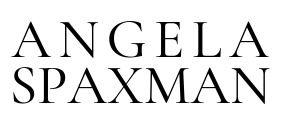I recently took part in an interactive forum with Mark Gerzon introducing his latest book, Leading Through Conflict –How Successful Leaders Transform Differences intoOpportunities. And I noticed that while Gerzon’s theme is global leadership, his model of leadership relates closely to the model of coaching for leaders. And it extends the coaching model even further using beautiful language that gets to the core of the practice. It serves as a very useful reminder of the core skills of coaching.
Below are the global leadership skills named and briefly described by Gerzon. Where he mentions ‘conflict’ we can use the word ‘problem’ to make it relevant to a coach-leadership situation. Do you see these as important skills for coach-leaders?
Integral Vision
“Committing ourselves to hold all sides of the conflict, in all their complexity, in our minds –and in our hearts”
This is the attitude of non-judgment extended to what it really is. Coaches not only accept the differences in people, they appreciate them and relish the opportunity to broaden their own thinking (and feelings) through understanding others. People who use this skill have evolved to a higher level of consciousness that allows them to see issues from a broader view. (See past article on Evolving as a Leader by Practicing Coaching)
Systemic Thinking
“Identifying all(or as many as possible) of the significant elements related to the conflictsituation and to understand the relationship between these elements”
Like global leaders, coaches work with their coachees toclarify all the dynamics of a situation, to identify root causes and possibleleverage points.
Presence
“Applying all ourmental, emotional, and spiritual resources to witnessing and transforming theconflict”
The hallmark of excellent coaching is this kind of presence.It includes engaged listening where the coach strives to understand, andintuitive listening where the coach observes his/her own feelings or inklingsas a source of more insights.
In addition to witnessing the problem, the coach applies allof his/her resources to transform the problem. I don’t think Gerzon means theleader necessarily solves the problem or fixes the conflict. But there is avery high level of commitment, especially in terms of how the leader is willingto think and communicate with an aim to create a longer term solution. Theproblem can only be truly transformed when the players are transformed, andthat is certainly the job of the coach.
Inquiry
“Asking questionsthat elicit essential information about the conflict that is vital tounderstanding how to transform it”
The coach’s questions share exactly this purpose. AgainGerzon uses the word ‘transform’ to emphasize a longer term solution.
ConsciousConversation
“Becoming aware of our full range of choices about how wespeak and listen”
This point is another reason personal development is soimportant for coaches. We must be highly aware of ourselves so that we canconsciously select from the full range of communication choices.
Dialogue
“Communication inorder to build trust and knowledge that maximizes the human capacity to bridgeand to innovate”
The best coaching conversations are dialogues sharing thehighest thinking and sensing of the coach and coachee.
Bridging
“Buildingpartnerships and alliances that cross the borders that divide an organization”
Using coaching skills, a leader will naturally build strongaffiliations with a wide diversity of people and become a bridge-maker.
Innovation
“Catalyzingsocial or entrepreneurial breakthroughs that foster new options for movingthrough conflict”
The key word here is‘catalyzing’. Coaches may not have the big ideas themselves, but they do helpto discover and encourage the formation of new ideas. They do this by beingencouraging, optimistic and open to possibilities while also being willing tochallenge and call for excellence.
Which of these skills do you use in your own leadership?
Which one of these skills would do the most to strengthenyour coaching? Let me know and I’ll write more on that skill next month.

Well, it's really interesting to answer this question (even though I asked it myself!) because it forces me to think about the people I am coaching and what I need to focus on to improve my coaching.With that perspective I will choose to focus on Inquiry because I like the words 'elicit essential information'. I am often trying to help my clients gain the perspective to realize what's truly happening around them. And it's more than just asking questions that can be answered immediately. It is even more powerful to identify assignments for the client to seek the information that have not yet seen. That's what I will try to do.And for you?